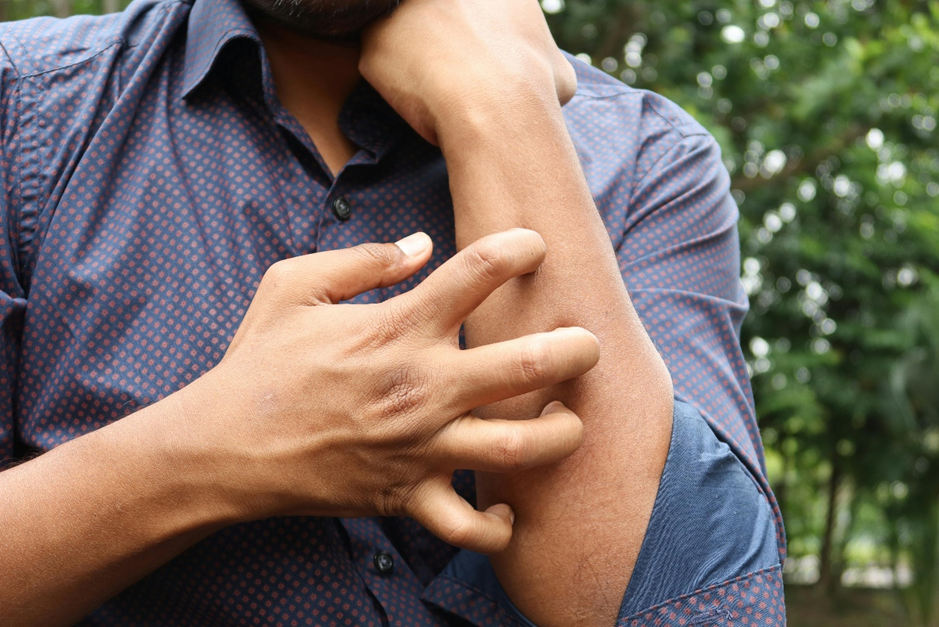Recently, there has been a rise in hospitalizations due to severe dengue fever with multi-organ failure complications, including severe liver damage. Notably, these complications affect not only children or those with underlying health conditions but also healthy adults.
In the first 7 months of this year, the number of severe dengue cases at the Hospital for Tropical Diseases (TP HCM) continued to increase. Out of a total of 3,169 hospitalized cases, nearly 20% were classified as severe. Approximately three-quarters of these severe cases presented with severe shock, and over 3% with severe bleeding, multi-organ failure, or a combination of the three. The proportion of severe cases rose from 17% in 2024 to almost 20% in the past 7 months.
In mid-June, Nhu Quynh (33, factory worker) experienced high fever and body aches, opting for self-treatment at home for two days. Upon admission to the Hospital for Tropical Diseases, doctors diagnosed her with severe dengue fever, with a high mortality risk due to dangerous complications such as shock, plasma leakage leading to blood thickening, pleural effusion, and liver failure.
 |
Dengue fever is a viral infection transmitted to humans through the bite of infected Aedes mosquitoes. Photo: Pexels |
Dengue fever is a viral infection transmitted to humans through the bite of infected Aedes mosquitoes. Photo: Pexels
Avoid self-treating dengue fever at home.
Medical experts warn against the common practice of self-medicating for fever or using antipyretics to quickly reduce symptoms. This is dangerous because severe complications from dengue fever can appear between the 3rd and 7th day of illness onset. Without monitoring and timely intervention, especially for liver complications, patients may face a life-threatening situation.
According to a study in the World Journal of Hepatology, about 60-90% of people with dengue fever are at risk of liver damage. Severe cases can easily develop acute liver failure. In such cases, the liver almost completely loses its ability to perform functions such as detoxification, production of clotting factors, and metabolic regulation. Without prompt treatment, the mortality rate can reach 50%, as published in the Journal of Infection and Public Health, a publication of the Saudi Arabian Ministry of Health in 8/2024.
The liver plays a central role, performing a series of vital functions including: regulating metabolism and blood clotting, synthesizing proteins, and regulating cholesterol. Even in healthy individuals, impaired liver function can easily cause metabolic and immune imbalances, increasing the risk of hepatitis and leading to cirrhosis - a chronic disease responsible for 800,000 deaths globally each year.
The battle when the dengue virus invades the liver
Many clinical cases show that even young people with good physical condition and immune systems can be severely affected by dengue fever, developing complications such as bleeding, hypovolemic shock, and multiple organ failure, including liver damage.
Medical experts explain that during the acute phase of dengue virus infection, NS1 - a protein characteristic of this virus - is already present in the patient's blood. Studies in 2021 and 2023 in the journal PLoS Pathogens indicate that NS1 can cause vascular leakage, indirectly leading to a cytokine storm in people with severe dengue fever.
A cytokine storm is a phenomenon where the immune system overreacts, releasing a flood of inflammatory cytokines, causing organ failure. Usually, when attacked by a virus, a healthy body releases cytokines to suppress the virus. However, in some cases, excessive cytokine release can affect vital organs.
This phenomenon has been observed to cause vascular damage, plasma leakage, circulatory shock, and multi-organ damage - characteristic of severe dengue fever.
 |
Many cases of liver damage occur in dengue fever infections. Photo: Pexels |
Many cases of liver damage occur in dengue fever infections. Photo: Pexels
Challenges in treating and preventing dengue fever
Treating and recovering from dengue fever presents a significant challenge for both patients and doctors, especially with the rising number of cases and the frequency of severe complications. This situation puts pressure on healthcare workers and leads to hospital overcrowding. Many patients arrive at the hospital late, after 2-3 days of self-treatment at home, making medical intervention more complex due to the advanced stage of the disease.
The Ministry of Health reports that from 14/12/2024 to 17/8, the country recorded 65,101 dengue fever cases, including 11 deaths. Compared to the same period, the number of cases increased by over 20.8%, and the number of deaths was 5 higher. The current hot and humid weather with frequent rain creates favorable conditions for the breeding of disease-transmitting mosquitoes.
The Ministry of Health recommends that people take proactive preventive measures: using mosquito nets, wearing long-sleeved clothing, covering water containers, spraying mosquito repellent, and more. In areas with a high risk of dengue fever, the WHO recommends combining vector control and vaccination to reduce the risk of both infection and complications.
Tuyet Ngan
*Patient names have been changed.
Content provided by Takeda Pharmaceuticals Vietnam Co., Ltd., and professionally approved by the Vietnam Preventive Medicine Association to raise public awareness.












